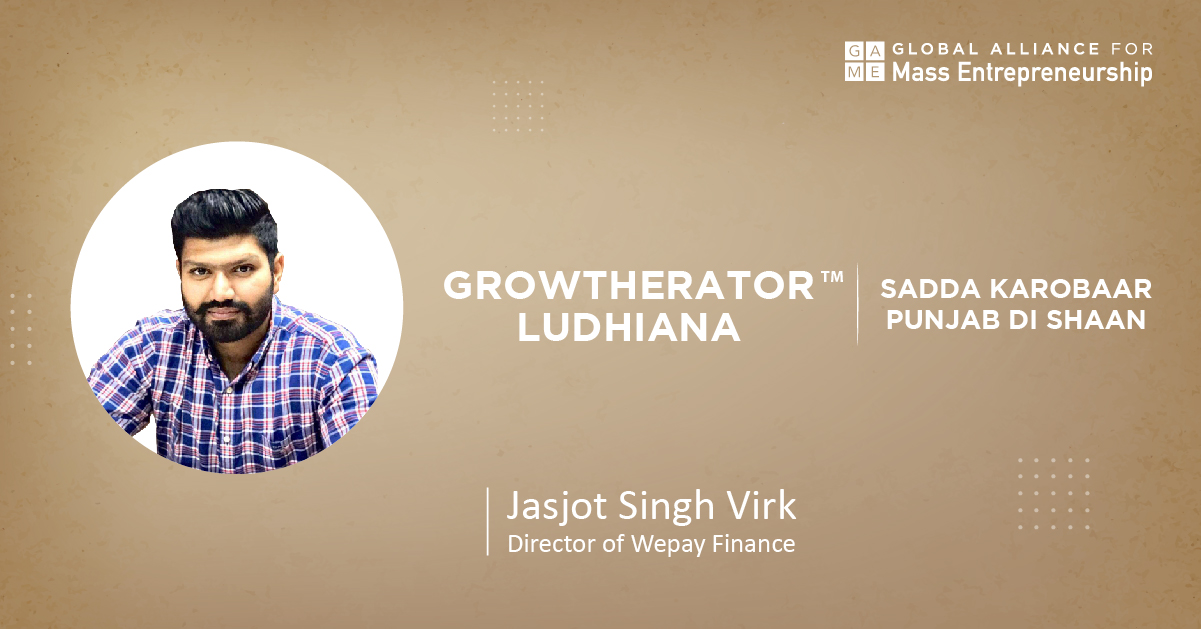Life has a way of ‘amusing us, blessing us and bruising us’, and for Jasjot Virk, life pulled him in a different direction than he had planned for, only blessing him in the process. A trained neuro-psychologist, Virk had never planned to step into the shoes of an entrepreneur. “I was just visiting my family, and out of curiosity, went to see how the money lending business was going. That’s when the potential of this business sparked an obsession of sorts.”
But Virk’s vision transcends profits and concerns about the bottom line. His original motivation for starting the company was to legitimize the family money lending business and organize it in a formal manner. Soon, his horizons widened. “I wanted to change the way people perceive money lenders. They’ve been portrayed in a negative light, and known to act as loan sharks out for your money and property.”
And change he did. Jasjot’s primary agenda in the beginning of his firm’s journey was to create a more customer-friendly recovery system, one that was conscious of the borrower’s point of view and planned a comfortable repayment schedule for them. “Instilling a culture of greater tolerance for late payments was one of the hardest challenges I had to face. I started this process of change by softening the aggressive recovery strategy we’d pursued till that time. I laid out an action plan for late payments.”
Virk’s belief was that better communication was key to better understanding and trust and that belief paid off last year. When the pandemic and the subsequent lockdown struck last year, Wepay Finance felt the jitters. “Our collection efficiency was down to 17% in April” Virk recalls. But it recovered to about 60% in May, and was back on track by September with 90-92% recovery. Calling up their customers and explaining to them the meaning and implications of the moratorium was a factor that had a lot of bearing on this recovery. “Not panicking about and not pushing people for money went a long way. As a result of our ethical and soft strategy, people coordinated with us and some who had the amount with them repaid the loan despite the moratorium.”
Being a first-generation entrepreneur, and one without any formal education in business or commerce, Virk found that the Growtharator programme was a necessary training tool for him. “Initially I had a lot of doubts about basic business jargon and concepts. The programme really cleared them out and I understood the mechanics behind entrepreneurship.”
In another instance, the Growtharator programme prompted Virk to run a Pavlovian incentive scheme for his customers. “We were asked to take feedback from our customers to get a better insight into our business. At that time, a lot of my customers were missing deadlines, and attracting penalties, but not paying them.” To minimize this double loss, Wepay initiated a 2.5% cashback scheme for punctual borrowers. “This helped us recover during the last covid wave. I knew that rewarding customers would work, but the nudge from Growtharator was needed.”
On a fundamental level too, the programme has affected the way Virk looks at his business. Mingling with other entrepreneurs, he says, has put things in perspective. “I’ve started viewing my business differently. My approach has changed, I’m setting shorter goals and writing my business plan down. Having an interactive session with company leaders and troubleshooting problems with them was an enjoyable and educational experience. Ideas and solutions come out of interactions.”
As mentioned before, Virk’s aim is not limited to the bottom line. “From people’s point of view, businesses are only confined to numbers and quantifications. No one talks about making a positive impact on society. People must filter the noise out. They must focus on making an impact.” The future of Wepay, according to Virk, would follow an impact-oriented trajectory. “I don’t just want to form a microfinance company and bridge the credit gap for marginalized communities in the short-term. There are people of great calibre in India, and I wish to start a programme that helps such people realize their skills and talents, and provide them with financial assistance which will sustain them in the long-term.”
As to the up-and-coming entrepreneurial generation, Virk warns them that there is no right time. “You’ll find yourself challenged, no matter what heights you’ve scaled. Don’t wait for a particular time. If you have an idea, work towards it. Money doesn’t fall into your lap; you have to reach out to people. You must have the appetite for business, that’s all.”
To know more about Growtherator Ludhiana, click here

